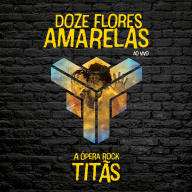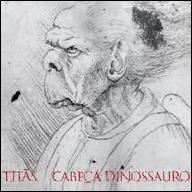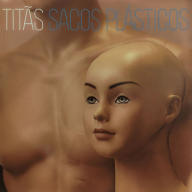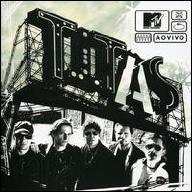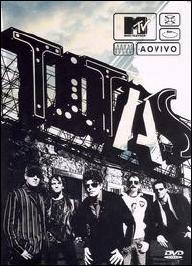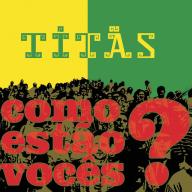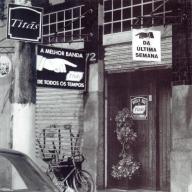In the late '70s, Fromer, Belotto, and Melo were the Trio Mamão. Four other musicians joined, and the new group formed was called Maldade. Reis and Miklos were in the group Sossega Leão. Reis also played with the Camarões, while Miklos also worked with the Bom Quixote. Paulo Miklos and Arnaldo Antunes also played in the Aguilar Banda Performática. Melo, Pessoa, and Charles Gavin were the Jetsons. Gavin, who would later join the group, was playing with Ira.
In that period, a group of composers with popular inclination (like Arrigo Barnabé, Grupo Rumo, Itamar Assumpção, and Premê) constituted a core of vanguard musicians who became known as Vanguarda Paulistana (São Paulo city vanguard). They met at the Lira Paulistana theatre. In this encouraging atmosphere, new bands were formed and presented their works.
In August 1982, the Titãs do Lê-iê opened in that theatre (without Jung). Departing from a common background constituted by the Beatles and Tropicalia, they began to write their own material, which was quite strange, beginning with the song titles: Bichos Escrotos, Sonífera Ilha, and Lilian, a Suja. As time passed, they began to incorporate other music into their sound, like funk, new wave, pop, reggae, and disco, always organizing their shows around a dance concept. Their stage presence was marked by an aggressive and rough choreography.
In 1983, the group was already known as Titãs and lost Pessoa, who departed for Cabine C. Before recording their first single, Titãs became regular TV attractions on shows like #Chacrinha, #Bolinha, #Barros de Alencar, #Raul Gil, and #Hebe Camargo. The contrast of their experimental performances with the middle-class common sense of these shows (except #Chacrinha, which can be understood as one of the best proponents of the Tropicalia spirit) made it evident that the group didn't fit -- not even in the Brazilian rock ranks, which were generally quite well-behaved compared to them.
In spite of the demos sent to recording companies, the best offers they received were to record compilations with several artists, but they refused, as they agreed that only one song wouldn't be enough to present the diversity of their work and they would run the risk of being tagged with that song's style. Their first LP came out in August 1984 through WEA. Titãs brought the naïve hits Sonífera Ilha and Marvin, and sold only 50,000 copies. One of the reasons for the bad reception was the release of Sonífera Ilha as a single. This was followed by a national tour where the spontaneity of old times was abandoned. The group's choreography was now done by a professional. Before the end of the year, the band participated in a high-audience TV Globo special, and André Jung departed for Ira, at the same time that Ira's Charles Gavin joined Titãs.
In 1985, their second release, Televisão, was recorded. The album, with production by Lulu Santos and artistic direction by Liminha, was released in June. The record sold 100,000 copies and was lauded by critics who approved of their hardcore focus; crude aggressivity blended with corny, brega elements; and pop and contemporary grooves.
On November 13, 1985, Tony Belotto was arrested with 30 mg of heroin, which he confessed to getting from Arnaldo Antunes. The police searched Antunes' apartment and found 158 mg of the drug, arresting him immediately. Belotto was freed by bail as an addicted Antunes remained in jail until December 9. After their condemnations, both served their sentences in liberty. The denunciation, though it didn't provoke the splitting of the band, produced the cancellation of 13 shows. The situation was recorded on Gavin's Estado Violência (initially called A Lei Que eu Não Queria).
In April 1986, the band recorded Cabeça Dinossauro. Under the impact of the police episode, the album brought Estado Violência and Polícia. The songs yielded a generalized criticism against the institutions named in the titles -- Igreja (church) and Família (family) -- along with other controversial tunes, such as Porrada and Dívidas. Bichos Escrotos, from their early times, was vetoed by censorship due to its profanity, but circumstance obviously propelled the success of the song, which was soon played on several radio stations in edited versions. The album, released in June, was received as a masterpiece. The album sold 380,000 copies and was elected by the major newspaper Jornal do Brasil (Rio), along with some artists, as the best album of the '80s. In Rio, they played with great success at the Teatro Carlos Gomes, and their trail of aggressiveness followed them there, where their fans destroyed the theatre's seats.
In November 1997, Jesus Não Tem Dentes no País dos Banguelas was released. The album sold 250,000 copies with the introduction of programmable electronics and more sophisticated arrangements. Nome Aos Bois lists a row of fascists and Lugar Nenhum assaults the notion of a nation. This album was also well-received by critics. The album was presented in Rio on January 6, 1988, and in São Paulo six days later, both during the Hollywood Rock Festival, where they surpassed their competition, who included the Pretenders. This phase introduced packed stadiums in the band's day-to-day life.
On July 8, the band recorded the live album Go back with their hits in a performance at the Montreux Festival, on a rock night shared with T'Pau and 10,000 Maniacs. The show's audience was very cold, but the album sold 320,000 copies in Brazil.
In 1989, the band recorded their sixth album, Ô Blésq Bom, which recovered elements very dear to Tropicalia, mixing a duo of Northeastern cantadores with lyrics about diseases (O Pulso) and morbidity (Flores). The album sold 230,000 copies, and a national tour followed.
In 1992, Antunes left the group to follow his solo career. Titãs continued their successful path with the WEA albums Tudo ao Mesmo Tempo Agora, Titanomaquia, Domingo, and Acústico, which sold one million copies. ~ Alvaro Neder, Rovi


